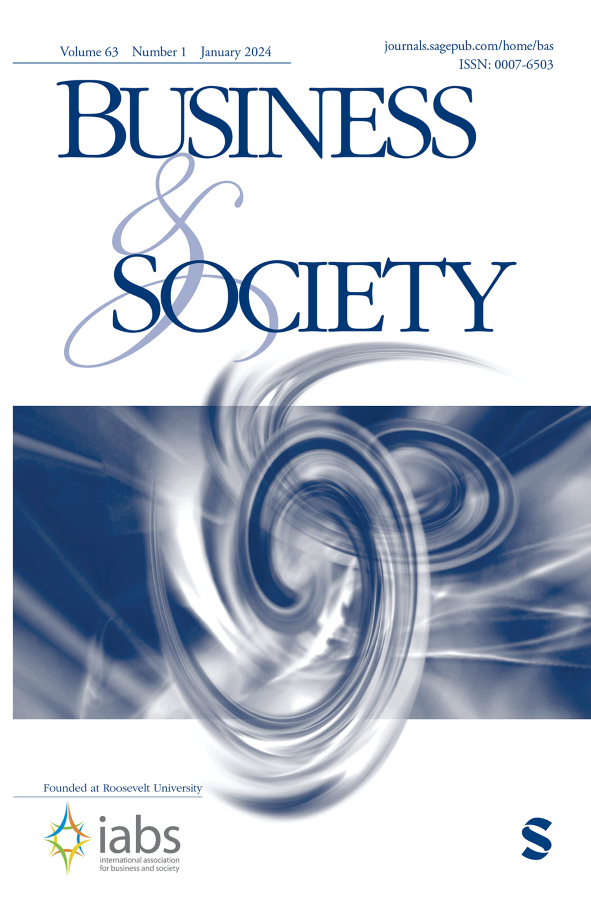公司治理与公司政治责任
IF 6
3区 管理学
Q1 BUSINESS
引用次数: 1
摘要
本研究调查了一个关键的政策问题,即公司治理是否影响其政治支出披露。使用2011年至2019年标准普尔500指数成份股公司的样本,我们发现经验证据表明,董事会的监督和资源提供角色会影响公司的政治支出披露。扩展代理理论驱动的预期,我们提供的证据表明,衡量董事会监督作用的措施,如女性监督董事、缩短董事会任期、审计委员会规模、审计委员会会议和审计委员会教育,可以提高公司的政治支出披露。其次,根据资源依赖理论,并考察董事会的资源规定,我们发现有证据表明,女性顾问董事、首席执行官的双重性、额外的董事职位和审计委员会的特征(即规模、会议次数、年龄和教育程度)促进了政治支出披露。该研究通过概述可能推动公司政治支出披露的不同类型的治理,为公司治理和公司政治活动文献做出了贡献,而政治支出披露是公司政治责任的关键组成部分。本文章由计算机程序翻译,如有差异,请以英文原文为准。
Corporate Governance and Corporate Political Responsibility
This study investigates the pivotal policy question of whether a firm’s corporate governance influences its political spending disclosures. Using a sample of S&P 500 firms from 2011 to 2019, we find empirical evidence that a board of directors’ monitoring and resource provision roles affect a firm’s political spending disclosure. Extending agency theory-driven expectations, we provide evidence that measures of a board’s monitoring role such as female monitoring directors, shorter board tenure, audit committee size, audit committee meetings, and audit committee education enhance a firm’s political spending disclosures. Second, drawing from resource dependence theory and examining a board’s resource provisions, we find evidence that female advisory directors, CEO duality, additional directorships, and audit committee characteristics (i.e., size, number of meetings, age, and education) promote political spending disclosures. The study contributes to corporate governance and corporate political activity literatures by outlining different types of governance that may drive a firm’s political spending disclosures, a key component of a firm’s political responsibility.
求助全文
通过发布文献求助,成功后即可免费获取论文全文。
去求助
来源期刊

Business & Society
BUSINESS-
CiteScore
14.80
自引率
11.40%
发文量
56
期刊介绍:
Business & Society publishes original research, book reviews, and dissertation abstracts relating to business ethics, business-government relations, corporate governance, corporate social performance, and environmental-management issues. Manuscripts relating to the field of business and society in general are also published. Submissions of theoretical/ conceptual work as well as empirical studies are encouraged. Business & Society is the first peer-reviewed scholarly publication devoted exclusively to the field of business and society, and it is the official journal of the International Association for Business and Society (I.A.B.S.), the only independent professional association dedicated to business and society teaching and research.
 求助内容:
求助内容: 应助结果提醒方式:
应助结果提醒方式:


